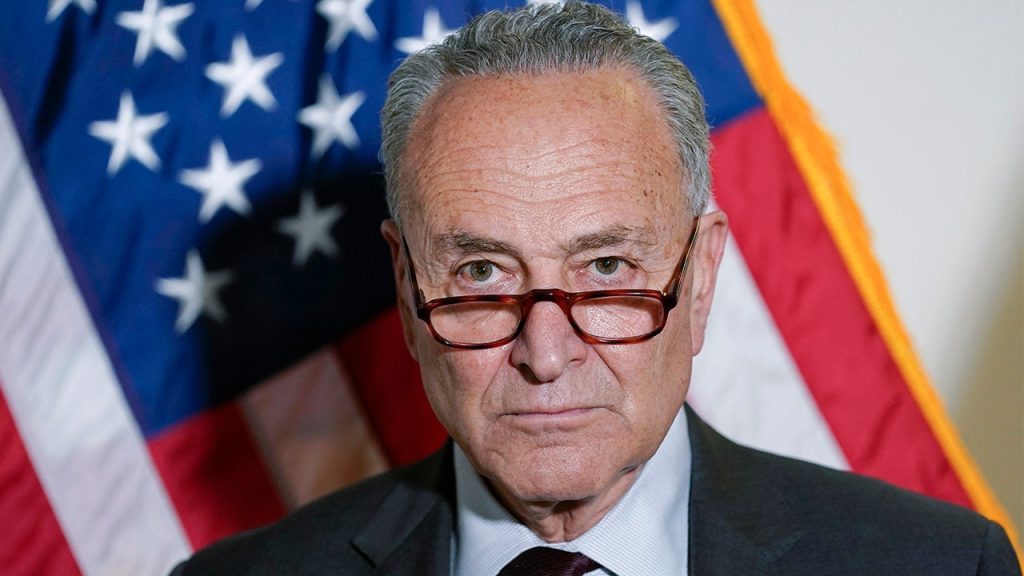Democrat senators are preparing to hold an internal leadership election following their loss of the Senate majority to Republicans in the 2024 election. The election, set to take place on Capitol Hill, will determine the top leadership positions in the Senate, including the No. 3 position currently held by a retiring longtime lawmaker. Former Senate Majority Leader Chuck Schumer is expected to assume the role of Senate minority leader following the election, while Sen. Dick Durbin is likely to continue serving as the No. 2 Democrat in the chamber as minority whip.
Sen. Debbie Stabenow’s decision not to seek re-election has left her policy and communications committee chair position up for grabs, with Sens. Amy Klobuchar and Cory Booker reportedly competing for the No. 3 position. However, it was reported that Klobuchar is in line to fill the coveted leadership role, while Booker will likely take on the No. 4 position in the Senate. Booker gained national attention during the campaign season with appearances in several key states, indicating a strong presence and potential influence in the Senate leadership team.
On the Republican side, Senate Majority Leader John Thune was elected to serve as the leader of the Senate in the upcoming Congress, replacing Chuck Schumer in the No. 1 position. With a six-seat majority in the chamber, Senate Republicans recently held their own leadership elections to prepare for the next Congress. Thune’s election via secret ballot signifies the GOP’s readiness to take on the leadership roles and responsibilities that come with their majority status.
The upcoming election for Democratic leadership positions marks a significant moment for the party as they adjust to their new minority status in the Senate. With top positions being vacated and new leaders stepping up to fill the roles, there is anticipation and speculation about the direction the party will take in the coming years. The internal election process will determine the individuals who will guide the Democratic caucus and represent the party’s interests in the Senate.
As Democrats navigate their transition from majority to minority status in the Senate, they will face challenges and opportunities in shaping their legislative agenda and priorities. The new leadership team will play a crucial role in developing strategies to work with Republicans and advance the party’s goals in a divided Congress. With Schumer and Durbin expected to retain their positions and new leaders taking on key roles, Democrats are preparing to chart a path forward in the Senate.
The internal leadership election within the Democratic caucus reflects the party’s efforts to regroup and organize following their loss of the Senate majority. As senators prepare to fill top positions in the chamber, there is a sense of anticipation and uncertainty about the future direction of the party and its legislative agenda. With new leaders stepping up and familiar faces retaining their roles, Democrats are poised to navigate the challenges of minority status and shape their approach in the Senate in the years to come.

